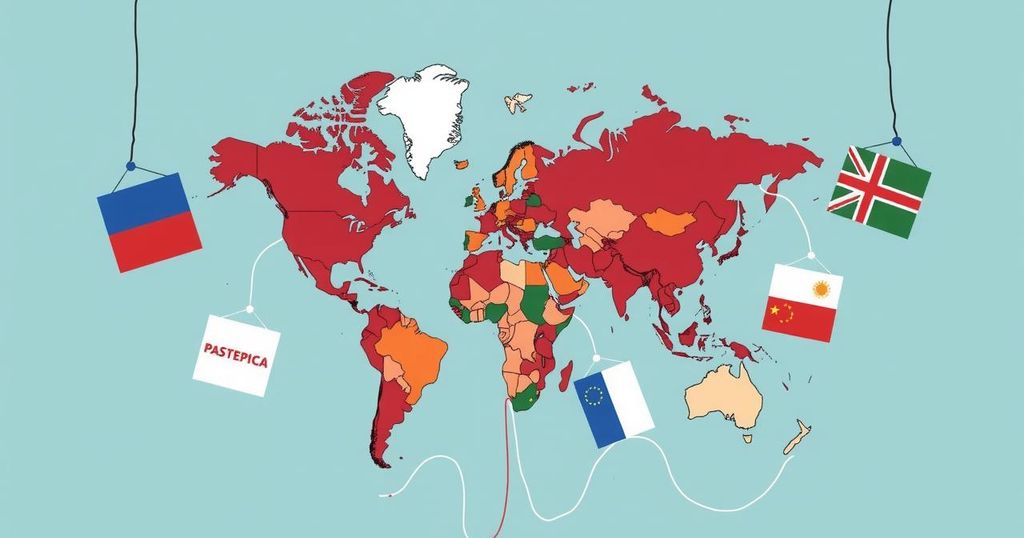Voter Discontent Reshapes Global Elections: A 2024 Analysis

In 2024, widespread voter dissatisfaction led to the ousting of incumbents across 70 countries, influenced by economic instability and pandemic repercussions. Significant elections pointed to a shift toward populism and raised concerns over electoral integrity. Countries such as India and South Africa experienced notable political upheaval, and issues of foreign interference became prevalent during the election cycle.
In 2024, global elections revealed widespread discontent among electorates, often resulting in the ousting of incumbent governments across approximately 70 nations, epitomizing a trend of anti-establishment sentiment. Economic turmoil, exacerbated by the COVID-19 pandemic and the fallout from Russia’s invasion of Ukraine, prompted voters from India to the UK to seek alternatives, often favoring populist leaders and parties. The year has been characterized by political upheavals, including severe protests, political party failures, and instability in several democratic states.
Notable examples include South Africa, where the ANC faced significant losses after three decades of leadership, and India, where Prime Minister Narendra Modi’s party lost its parliamentary majority for the first time in a decade. Further complicating the political climate, allegations of election manipulation and external interference emerged as prominent concerns, particularly in contexts like Romania and Moldova, hinting at broader vulnerabilities within democratic structures globally.
Additionally, the elections often marked a resurgence of authoritarianism and populism, as seen in countries like France and Austria, raising questions about the resilience of democracy in the current geopolitical landscape. The complexity of these issues continues to unfold, with many incumbents facing significant challenges in the upcoming elections, indicative of a potential shift in global democratic norms.
The article presents an analysis of the political landscape in 2024, highlighting the significant trend of incumbent governments being rejected across numerous countries. Several factors contributed to this phenomenon, including lingering effects from the pandemic, economic instability, and social unrest. The year’s elections showcased a populace increasingly eager for change, often turning to populist or outsider candidates. The concerns regarding interference in democratic processes through disinformation have also intensified, especially with evidence pointing to foreign entities influencing electoral outcomes.
The events of 2024 reveal a tumultuous year for global democracy, characterized by widespread anti-incumbent sentiment, economic distress, and rising authoritarian challenges. Voter dissatisfaction is reshaping political narratives worldwide, placing many incumbents in precarious positions as they face growing opposition. This emerging pattern necessitates a careful examination of democratic resilience and the dynamics of electoral politics going forward, as expectations from democratic processes continue to clash with reality, prompting calls for systemic reassessment.
Original Source: dailyjournal.net







